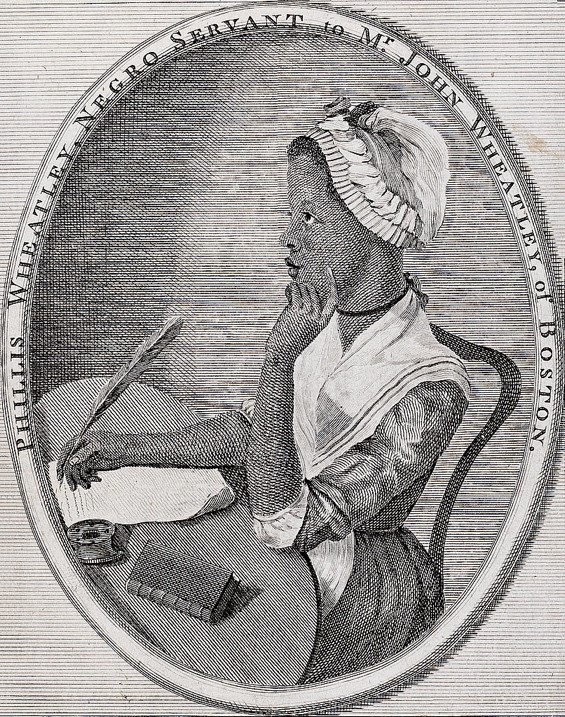Black History Month Profile

Phillis Wheatley: A Pioneering African-American Poet
by David Taylor, Fellow in English Literature
Phillis Wheatley (1753? – 1784) was the first African-American woman to have her writing published. Born in West Africa, she was probably just seven years old when she was enslaved and transported to Boston, where she was purchased by a merchant named John Wheatley.
Educated by Wheatley’s wife and daughter, Phillis was writing poetry by the age of twelve and had a poem published when she was only fourteen. In 1773 she travelled to London with Wheatley’s son, Nathaniel, and there oversaw preparations for the publication of her book, Poems on Various Subjects, Religious and Moral.
As the title of this collection suggests, much of Phillis’s poetry expressed her deep sense of piety—the Wheatley family were devout Christians. But at a time of huge political turmoil, her poems tackle many subjects and show both her support for American Independence and her opposition to slavery. She wrote a poem to mark the occasion, in 1775, of George Washington taking command of the Revolutionary army and such was her fame that she was later to meet both Washington and Benjamin Franklin.
The years of the American Revolution were not kind to her, however, and she died in poverty on the outskirts of Boston in 1784. Though largely forgotten for the following two centuries, her poetry is now being read, studied, and written about once more. You can read a small selection her poems here: https://www.poetryfoundation.org/poets/phillis-wheatley.
Students in English at St. Hugh’s have the opportunity to study Wheatley’s poetry—as well as work by other Black writers of the eighteenth century, such as Ignatius Sancho and Olaudah Equiano—on the ‘Literature from 1760 to 1830’ paper.
Photo: Portrait of Phillis Wheatley used as a frontispiece to her book, Poems on Various Subjects, Religious and Moral (1773)
